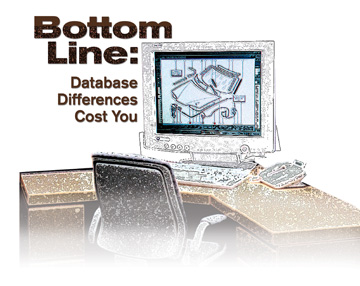
Isn’t it amazing that no matter what you write for an estimate, the insurance appraiser can find a way to cut the price?
You could write six hours for an eight-hour dent, and the appraiser will write five hours and then tell you what a hero he is for “giving” you the five hours. It also always seems their software comes up with fewer hours for the same operations.
How can this happen? Are there body shops pressuring the database providers to lower the flat-rate times because they feel guilty they’re actually squeezing out a profit? We can’t have that.
Sure, on a rare occasion, the appraiser might actually over-write you, but if this happens, it’s because you missed something or because the appraiser was doing more of a guestimate to save himself a trip to your shop for a supplement. (More than once I’ve had an appraiser call me while he was writing an estimate to tell me that he’d added some extra items. “Don’t call me for a supplement,” he says.) But we all know the odds of that happening are slim.
Up until a few years ago, if an appraiser told me the reason his estimate was lower than mine was because of the different databases, I’d shrug and figure “that’s life.” After all, .1 here and .3 there weren’t a big deal. Why should I nit-pick over a few tenths? The appraisers never do.
Then one day something happened that changed my outlook on database differences.
I had a wreck sitting in the lot, and there was a question of liability for the accident. As is common in this situation, both insurance companies came out to write an appraisal. I had already written one — it was pretty minor, with just a few parts needed — so both appraisers followed my estimate to the line. Both appraisers used ADP, and I wrote mine with Pathways.
One would think that both insurance estimates would be identical. And they were. Line by line, both estimates listed the same items. However, the bottom lines were different. And much of this difference was paint labor. The same part on each estimate had different paint times.
I called ADP and asked their tech support department how this could happen, and they told me that each insurer had set up their software differently.
“How different can the settings be? We’re talking about changing a fender here.” I asked him.
He let out a little chuckle and explained all the different options. Pathways has options too but, in my opinion, they’re more transparent.
We all know that each estimating system approaches the estimate-writing process differently, but they (don’t ask me who “they” is) say that if used properly, all three of the major estimating systems will come up with similar figures for the same damage.
Apparently no one is using the software properly, since the discrepancies seem to get larger and larger.
So, from that point on, I decided that I wasn’t going to let these little “database differences” slide by.
Accepting that few people really know how to use their estimating software properly, I decided that the fair thing to do was to insist that the insurance appraiser split the difference with me. If, after our estimates match in content, there’s still a “database difference” that hoses me out of the precious few dollars so generously offered by said insurance appraiser, I add up the difference and divide it in half. I then expect the appraiser to make a concession for his half.
Now, doesn’t that sound perfectly fair? Who could argue with this solution?
You’d be surprised. It amazes me how human beings can be conditioned to shut down their thought process.
“I’ve got to ask my boss.”
“I can’t make that decision.”
“They (there’s that “they” again) won’t let me do that.”
Sound familiar?
I spend a lot of time comparing estimates, trying to figure out just how the appraiser performed his magic trick and made so many dollars vanish into thin air. I also spend plenty of time trying to teach some appraisers what the words, “negotiation” and “compromise” mean.
I also hold my ground. And seldom do I get a refusal from an appraiser to split the difference of this mysterious lost time anymore. After all, I’m being fair. A simple line item on their estimate, “concession for database difference,” is all they have to do.
Writer John Shortell is body shop manager at Secor’s Collision Technology in New London, Conn. He’s been in the collision industry for more than 20 years and has developed computer software for shop scheduling called Body-Shop Schedule Pro, for subletting towing called Tow Bill Helper and for printing estimates in dollars called Dollars & Sense. For more information, visit www.bodyshopsolutions.com.













